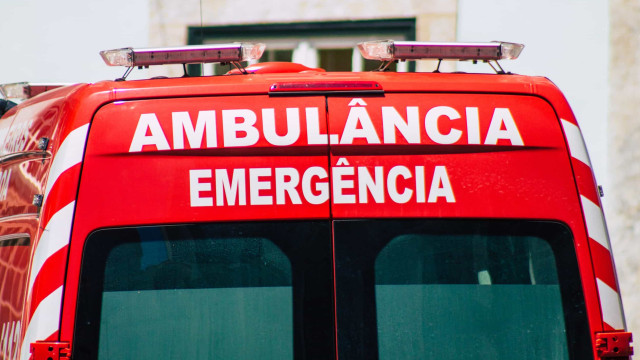On Wednesday, July 9, both the Fire Brigade of Oliveira do Hospital in Coimbra and the Volunteer Firefighters of Pontinha in Odivelas had a “unique and unforgettable” experience, assisting in the birth of two babies – one delivered in an ambulance and another at home.
At 9:45 that morning, two rescuers from Oliveira do Hospital witnessed what the fire brigade called “the story of a baby’s birth” on Facebook.
Upon arrival, Ricardo and Daniel encountered a “pregnant woman with contractions every two minutes” and requested “specialized support” from the Urgent Patient Guidance Center (CODU).
“During the transport to the maternity, alongside the SIV team from Arganil, the baby couldn’t wait any longer, and was born in the ambulance of the Oliveira do Hospital Volunteer Firefighters,” the organization detailed.
For the rescuers, the birth of Lavim was an “unforgettable and unique experience, marking their careers as firefighters.”
“Welcome, Lavim! Congratulations to the family, our firefighters, and the SIV team from Arganil!” the brigade noted.
At 2:38 PM that same day, the Volunteer Firefighters of Pontinha were dispatched to a home birth situation, which resulted in the birth of Márcia.
“A special thank you to the VMER team from Loures and our operatives for this beautiful moment,” emphasized the brigade, confirming that the baby was born at home.
At least 38 babies have been born in ambulances by this July, according to reports from fire brigades on social media. However, it’s important to note that the number might be higher, as not all events are publicly reported by rescuers.

A 26-week pregnant woman who contacted the emergency services was transported by the Volunteer Firefighters of Nazaré to Leiria. The baby was born en route but sadly passed away upon arrival at the reference hospital.
In April, Health Minister Ana Paula Martins emphasized the need to ensure fewer births occur in ambulances, even though she acknowledged similar situations have always existed.
“The objective is to have fewer babies born in ambulances, especially through well-monitored pregnancies. If there’s one area where we’ve excelled over the past 45 years, it’s in maternal and child health. Therefore, we must ensure that these indicators remain strong,” she stated after visiting Santa Cruz Hospital, part of the Western Lisbon Health Unit.
When specifically asked about the rising number of births in ambulances and reports indicating about fifty births in such vehicles last year, Ana Paula Martins noted that “this phenomenon has always happened and will always occur, as it cannot be entirely prevented in some cases.”
“But naturally, this is not our objective in any case,” she stated.





